-- A chase for waterfalls, beauty and pearls in
Zhuji
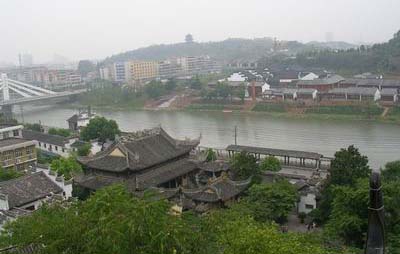
An overlook of Zhuji.
Jane Chen / Shanghai Daily news
Retreating from the seclusion of Wuxie, I set of on a
trip to Xishi Temple in suburban Zhuji.
Along with Diao Chan, Wang Zhaojun and Yang Yuhuan, Xishi is famed as one of
ancient China's most beautiful ladies. She lived some 2,500 years ago, making a
living by washing weaves in the Huan River of Zhuji. Around 500BC, Zhuji
was the capital of the then Yue State during the Spring and Autumn Period
(770-476BC).
Xishi was chosen by King Gou Jian of Yue to be a tribute to King Fu Chai of
the Wu State. Trained as a spy, she totally bewitched Fu Chai. Gou
Jian launched his attack and put the Wu army to rout. Fu Chai then committed
suicide. The irate Wu people drowned Xishi in the Yangtze River in
retaliation.
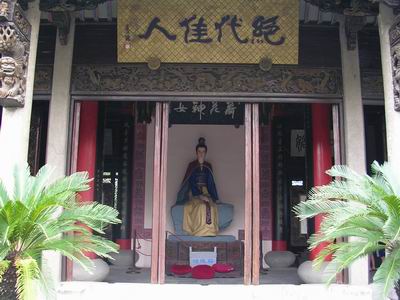
The statue of Xishi in the Xishi Temple.
Despite all this, Xishi is remembered as a heroine in her
hometown, where a temple is built on the site in the village where she is
believed to have lived.
The temple is small, and a 30-minute tour suffices to see everything.
But my guide said that what attracts in the temple is not its size but the
quality of the architecture. Decorations and parts of the structure date
back 200 years.
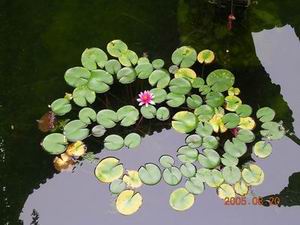
A pond of waterlily in the garden.
The gardens are typical of Zhejiang, small yet beautiful, delicate
and elegant.
The stone walkway along the garden features numerous stone tablets featuring
scripts left behind by celebrities, including the poet Li Bai. Some are
contributions from Japanese calligraphers to the memory of her long-gone
beauty.
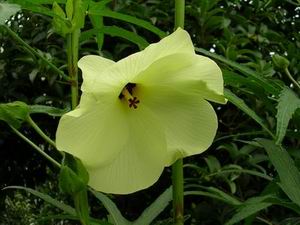
A yellow flower is in full bloom in the
garden.
In the middle of the park stands a tower, where you can enjoy a
bird's eye view of the park as well as of the Huan River silently rolling
through Zhuji. On the opposite, or east, side of the river, a second-phase
project is under construction that will form part of the Xishi Temple.
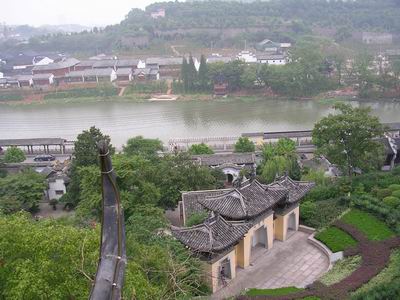
A bird's view over the Xishi Temple. The
river, Huan River, is where Xishi was said to wash weaves. On the
opposite, or east, side of the river, a second-phase project is under
construction that will form part of the Xishi Temple.
Our guide said the new project will be named Dongshi Temple, which
triggered a burst of laugher among the visitors.
For Chinese, the name is really funny and bodes-ill. As the legend
goes, Dongshi was a lady who always tried to imitate Xishi, but invariably to
ludicrous and ultimately embarassing effect.
Everyone is now looking forward to the park's new attraction!
It is no surprise to learn that pearls are a key speciality of Zhuji, the
hometown of the country's great beauty. The city, a leading site of
fresh-water pearl cultivation in China, now boasts a leading pearl market.
Because of the tight schedule, I was unable to strike a bargain at that
market, which people at my hotel advised was some way out of town. But I
did manage to buy some pearl products at a smaller market in downtown
Zhuji.
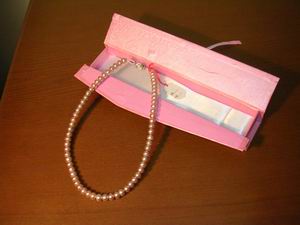
A pearl necklace bought in Zhuji.
The pearls may not be such good bargains, but at least I received
a good ABC of pearls from the anxious eager-to-please trader.



